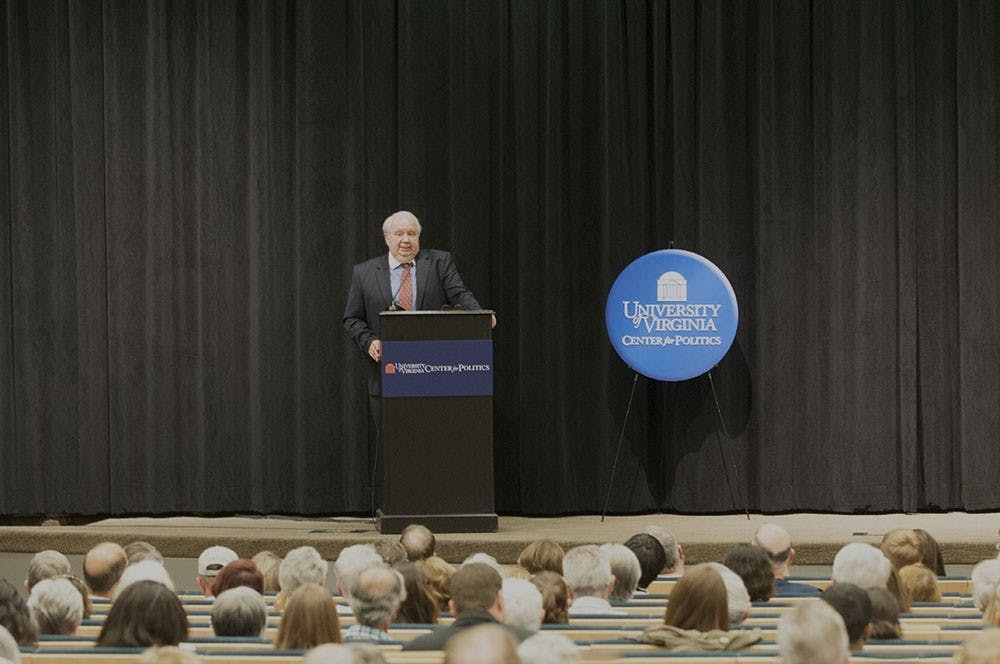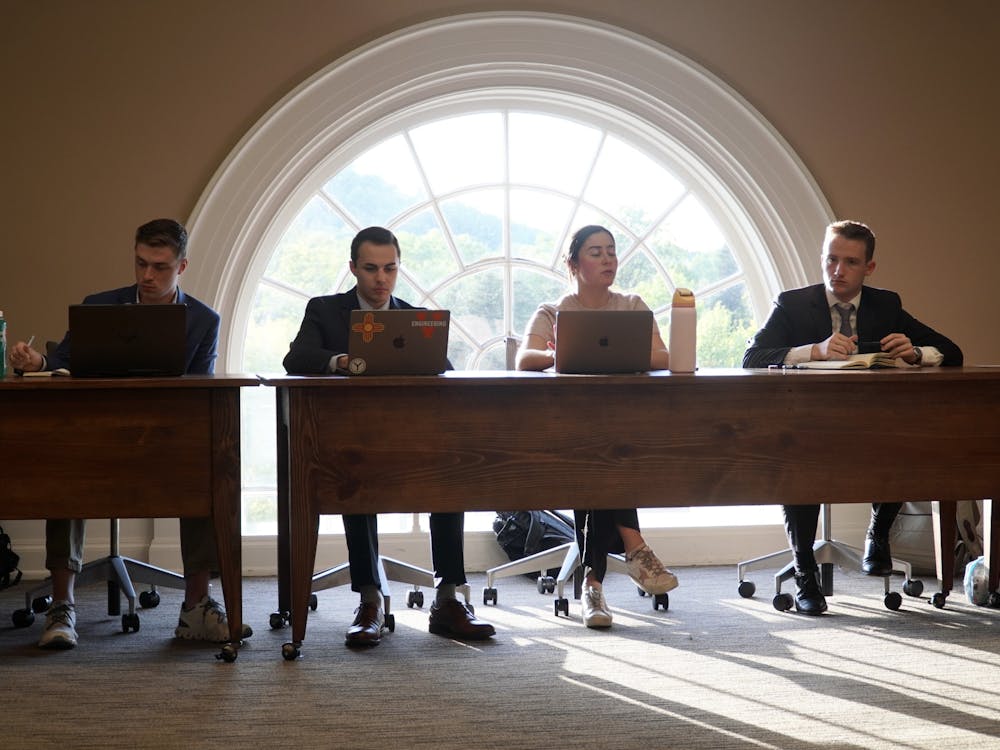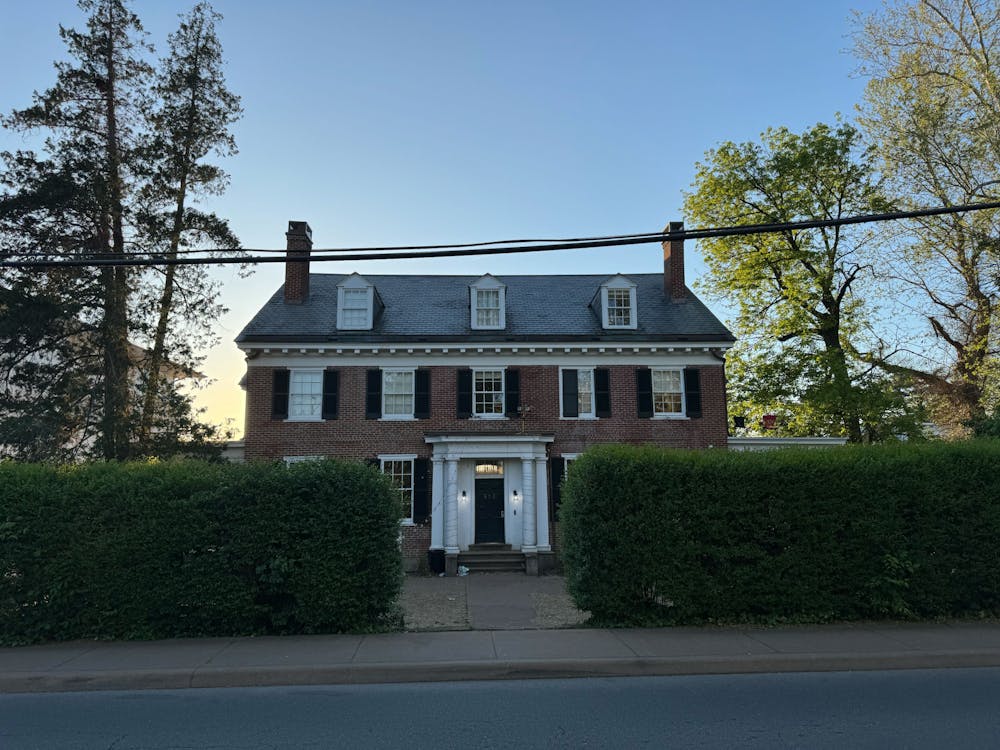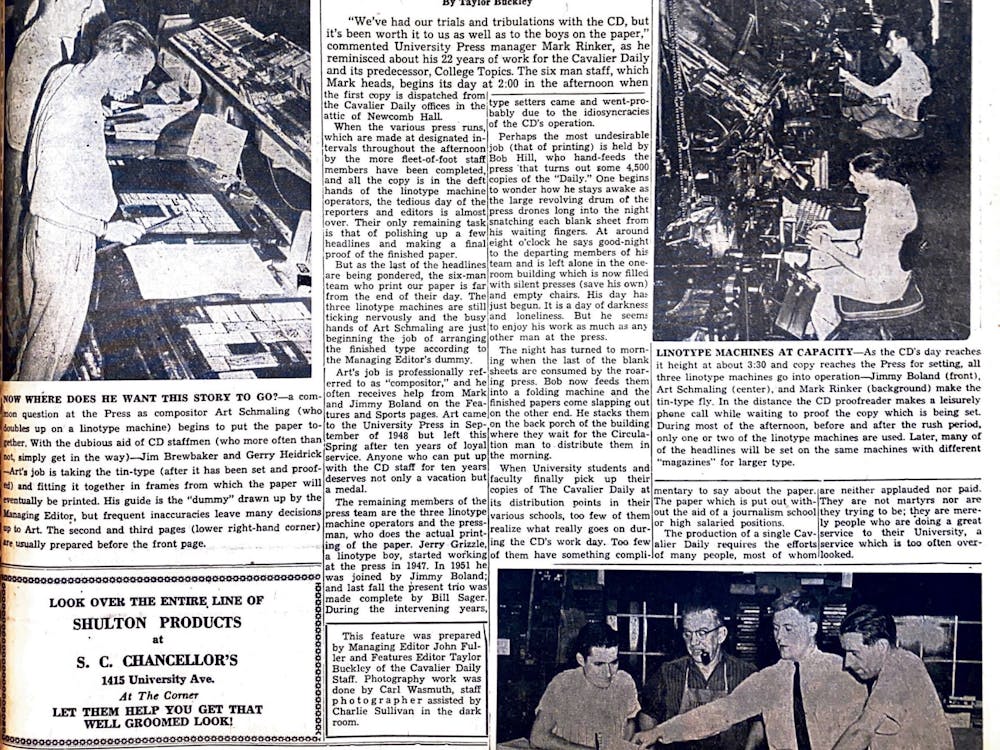The Center for Politics hosted a public lecture Tuesday featuring Sergey Ivanovich Kislyak, current ambassador to the United States from the Russian Federation. The event was coordinated by the Center for Politics’ Global Perspectives on Democracy Program as a part of its Ambassador Series.
“The most important reason to host the ambassador is really to communicate,” said Daman Irby, director of operations at the center. “[It is important] to have the opportunity to receive his perspective and the perspective of the Russian government on situation[s] in the world, in Ukraine and the relationship with Russia and the United States.”
Kislyak briefly lectured during his time on stage in the Newcomb Theater, but saved most of his time for questions from the audience. He addressed the strained relationship between the United States and Russia since the end of the Cold War and the potential for future cooperation.
“Basic premises in ideological divides for confrontation in the past [are] no longer,” Kislyak said, signaling progress for U.S.-Russian relations post-Cold War. But he said there are still strains on the two countries’ relationship.
“[We] don’t have economic ties that would be a good political stabilizer,” he said.
Trade between the U.S. and Russia constitutes less than one percent of American trade, he said, pointing out that even though Russia is the closest neighbor of the United States other than Mexico and Canada, trade between Alaska and Russia is almost nonexistent.
Kislyak said economic sanctions and the relative youth of Russia’s market economy have added to this struggle.
“We have to respond once [to sanctions], and we have to defend our small economy,” he said.
Kislyak said Russia would prefer to foster a relationship of mutual respect with the United States, rather than continue with current restrictions and sanctions.
He added, however, that Russia will not accept terms from the United States on which they fundamentally disagree.
“Sometimes we offer our view to the United States to work together and it is not accepted,” Kislyak said, citing Russian opposition to U.S. intervention in Iraq as an example.
“[We] felt it would bring big difficulties, and look what is happening today,” he said.
Kislyak also addressed the situation in Ukraine in regards to U.S. and Russian policies.
“To me, the policy of the Ukraine is more anti-Russian than pro-Ukrainian,” he said.
He said Russia, because of its proximity to the Ukraine, knows the situation much better than its “American friends.”
“The core of the problem of Ukraine is inability of their government to talk to their own people,” he said. The first steps, he said, are to “stop shelling, [and] start talking. [We] do not want this bloodshed to continue.”
On a more positive note, Kislyak expressed hope for the future, saying younger generations of both Russians and Americans “do not have the Cold War stereotypes in their genes.”
One potential point of cooperation between the two countries moving forward will be in fighting against terrorism, he said.
“Yes we have differences, but also have the ability to work together,” he said. “[Change should be] based on mutual respect [and] has to be based on trying to understand the other side.”





